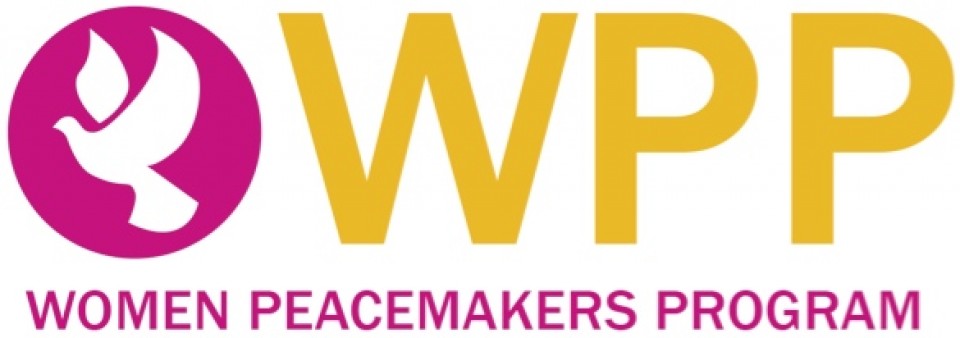Home » Uncategorized
Category Archives: Uncategorized
Reflections on the WPP Asia Consultation Meeting
WPP Asia Consultation Meeting. 10-11 April 2013
It was a joyous mix of reconnecting with old partners and meeting new members at the beginning of the WPP Asia Consultation Meeting in Jakarta, Indonesia. The Consultation Meeting took place after the closing of the 2012-2013 Asia Training of Trainers cycle. With the experience of older members of the Asia network and the new insights of the ToT participants, who also joined the Consultation, the two days together promised to be filled with connecting, reflecting, planning and strengthening the WPP Asia Network for the upcoming years.

Group photo with all the consultation partipants
The aim of the Consultation Meeting was to review the activities of the Asia network of the last two years, evaluate the network processes, and use these lessons to strategize for the next couple of years. The Consultation was designed in such a way as to enable full participation of all the attendants, who were encouraged to dream while remaining realistic about what could be achieved. The active participation and enthusiastic group dynamics resulted in the identification of a broad range of lessons learned, as well as challenges and opportunities for the WPP Asia network to take along for the upcoming years.
To support the internal reflection and planning process, it always helps to hear inspiring stories about women’s role in peacebuilding from fellow activists from the region. WPP invited Shadia Marhaban, the only female negotiator during the peace talks between the Government of Indonesia and Free Aceh Movement (GAM) of 2005, to talk about her experiences. Her story was very inspiring, stressing the fact that women’s participation should go beyond the negotiation table, and should also be included in the peacebuilding and reconstruction processes after the peace agreement has been signed. Apart from the peace talks, Shadia also shared practical tips and tricks for future negotiators, especially for female negotiators. She underlined that, in order to be able to demand for a gender-sensitive peace agreement, female negotiators have to be knowledgeable about international instruments on women’s participation in peacebuilding, such as UNSCR 1325, and need to have sufficient negotiation skills. Shadia’s experience touched many of the participants, who were very eager to talk to her after her presentation.
During the Consultation, we had many useful discussions about network dynamics and the different political challenges and opportunities arising in the Asia region. Drawing upon the experiences of participants who are also part of other network-settings, one of the discussions focused on the topic of “visibility with integrity”. Networks always face the dilemma of the need to be visible as a strong network – for donors, public outreach, and making an impact – and individual members’ need to be properly recognized in their identity as well as credited for their accomplishments. The importance of transparency in sharing information with the whole network was stressed, including the necessity to recognize and credit the work of all the stakeholders. The discussions provided a lot of valuable input for the network principles and internal procedures, and provided a sound basis for our future collaborations.

Presenting the visibility strategy and activities
One of the central activities during the Consultation was a joint SWOT analysis. The WPP Asia Network draws its strength from WPP’s 16 years experience with gender-sensitive peacebuilding and UNSCR 1325, and particularly its flexibility and courage to address new topics within the women, peace and security agenda, such as masculinities. In addition, the different areas of expertise of the network members, and the strong local/ national networks they are part of, provide a strong basis for regional mobilization for gender-sensitive active nonviolence. The growing attention for UNSCR 1325 and positive masculinities in the Asian region; the democratisation processes in several countries; and new communication and advocacy tools are several of the many opportunities emerging in the Asia region for the network to jump into. There are also internal weaknesses to address and external threats to divert, but the network members were determined to look at the future through the positive lenses of strengths and opportunities. We eventually used the SWOT analysis as the basis for developing comprehensive strategies and activities for the upcoming two years.
Together we identified three strategies and already came up with a list of concrete activities for the network. During the upcoming weeks these will be worked out in detail, but we would like to give you already a glimpse at what we are up to:
For consolidating the Asia network, both financially and practically, we will focus on establishing stronger ties between the members on a national and regional scale. Organizing capacity building on gender-sensitive active nonviolence will be a key point here. Through effective information exchange, including the appointment of national and sub-regional focal points, and an Asia mapping on UNSCR 1325, the members will be able to strengthen their connections. We are also looking into joint projects on gender-sensitive active nonviolence, with the possibility of organizing a network conference on masculinities and UNSCR 1325 in 2014! To increase our visibility, we explored how to best make use of social media and building an online platform to broaden our public outreach. So be prepared to hear more from us in the future!
All in all, the two days provided much food for thought! The face-to-face interactions made the event very successful. Just imagine: activists from countries such as Pakistan and India, South Korea and Indonesia, brainstorming, connecting and coming up with ideas for a strong gender-sensitive nonviolent network and impact in Asia.
Thank you, all the activists at the Consultation! We are looking forward to working with you in the near future!
